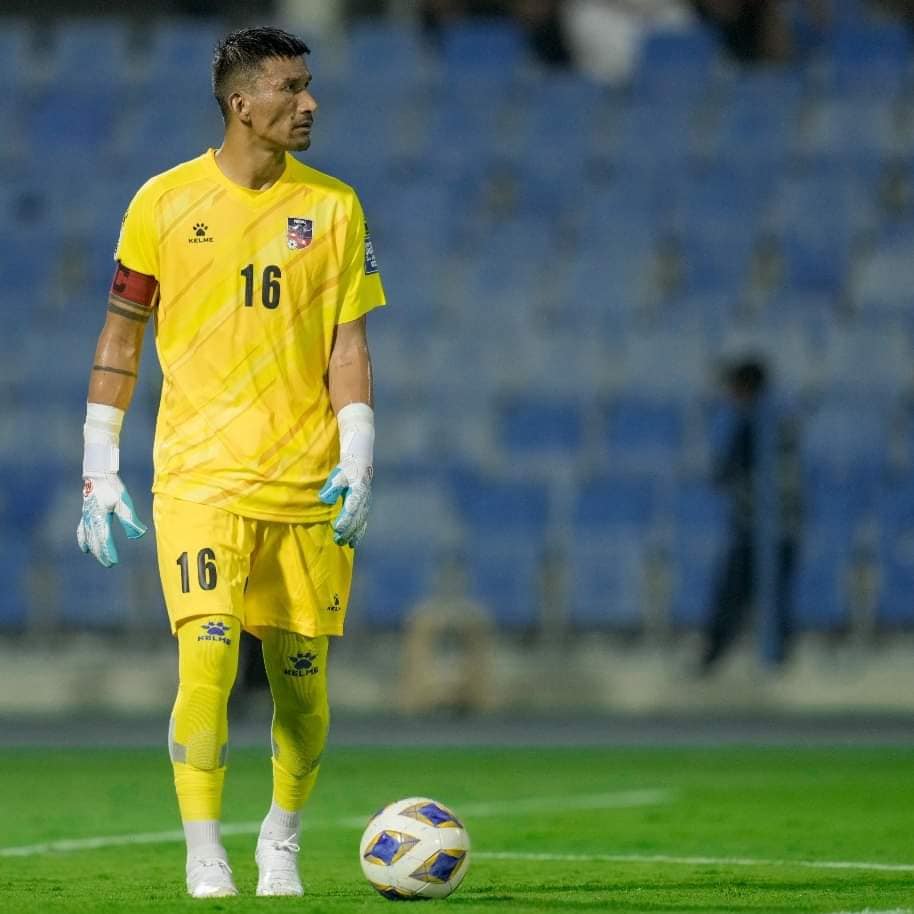Football
Nepal find gear on last day and signs are promising
Goals from Sanjeeb Bista and Gillespye Jung Karki, and a solid performance from goalkeeper Kiran Kumar Limbu help Nepal draw with Yemen 2-2.
Dil Kumar Ale Magar
Nepal can finally breathe a sigh of relief and will have at least something to cheer for when they return home from Saudi Arabia—thanks to a spirited battle against a strong Yemen.
The Gorkhalis headed into their last Group H game of the second round of the 2026 FIFA World Cup and 2027 AFC Asian Cup Qualifiers against Yemen on Tuesday low in confidence after losing all of their previous five matches, with their most recent embarrassment coming in a 4-0 drubbing by group winners United Arab Emirates last week.
Vincenzo Alberto Annese’s men had conceded 18 goals in five qualifiers matches, scoring none in reply.
Nepal’s dismal qualifiers campaign was also partly contributed by the sheer negligence of sports authorities All Nepal Football Association (ANFA) and National Sports Council whose poor management of the country’s only international standard football venue—Dasharath Stadium—forced Nepal to play their two home matches at neutral venues.
However, on Tuesday, they floored Yemen with a dogged fightback until the death after initially falling behind to a ninth minute Nasser Al Gahwashi penalty at the Prince Mohammad bin Fahd Stadium in Dammam, thanks to Sanjeeb Bista and Gillespye Jung Karki whose goals either side of the half time turned things around for Nepal.
Although Mohammed Al Dahi’s equaliser in the first minute of stoppage time denied them a first victory of the qualifiers and also a first win against Yemen, their dogged display will still serve as a testament that the youth Nepali squad have a lot of potential.
The draw against Yemen will especially wash the burden off the Italian coach Annese whose contract with Nepal is expiring this month.
Annese, who was appointed as Nepal head coach in March last year, has been under a sharp knife following a series of disappointing results that also included a draw against minnows Bhutan, disappointing SAFF Championship campaign and World Cup Qualifiers first round struggles against Laos.
The 39-year-old coach has been using the exodus of Nepali football stars including Bimal Gharti Magar and Sujal Shrestha to Australia and an inexperienced squad as his defence for Nepal’s poor run of results in the international arena.
But he seems to have finally cracked the code in his probably last game with Nepal as coach. And the output against Yemen could possibly convince ANFA to trigger another extension in his contract. ANFA had added a three-month extension in Annese’s contract this year.
The emergence of Sanjeeb, who only made his international debut in March this year as an 88th minute substitute during a 5-0 qualifiers loss to Bahrain, is even more promising.
Sanjeeb, who played full 90 minutes in Nepal’s 3-0 loss against Bahrain before being benched in 4-0 defeat to the UAE, had a hand in both of Nepal’s goals against Yemen in Dammam.
Sanjeeb, who replaced star forward Anjan Bista in the front, first pounced on a misplaced back pass from Radhawan Al Hubaishi and bent the ball past Yemen goalkeeper Mohammed Khairalah to score an equaliser in the 22nd minute.
Sanjeeb then received a long pass from Chhiring Lama and served it for Karki to head home Nepal’s second goal in the 66th.
It was the first international goals for both Sanjeeb and Karki. Karki made his debut for Nepal in September last year during Nepal’s goalless draw with Myanmar.

The evening was also memorable for Nepal captain Kiran Kumar Limbu. Playing his 100th international match, the 34-year-old goalkeeper produced a string of stunning saves to keep Yemen at bay till the final moments and helped Nepal earn a point.
Even though Nepal failed to reach the third round of the FIFA World Cup Qualifiers and could not directly qualify for the 2027 Asian Cup, they still have a chance to secure their spot in their maiden Asian Cup through Asian Cup Qualification which will be played between March 25, 2025 to March 31, 2026.
Top two teams from each nine groups qualified for the third round of 2026 FIFA World Cup and also secured a direct berth to the 2027 AFC Asian Cup. Qatar, Kuwait, Japan, North Korea, South Korea, China, Oman, Kyrgyzstan, Iran, Uzbekistan, Iraq, Indonesia, Jordan, Saudi Arabia, UAE, Bahrain, Australia and Palestine progressed.
The 18 nations who failed to advance (India, Afghanistan, Syria, Myanmar, Thailand, Singapore, Malaysia, Chinese Taipei, Turkmenistan, Hong Kong, Vietnam, Philippines, Tajikistan, Pakistan, Yemen, Nepal, Lebanon and Bangladesh) will compete in the 24-team AFC Asian Cup Qualifiers, with only six teams making it to the Asian Cup finals.
Bhutan, the Maldives and Laos will join them in the third round of Asian Cup Qualification as the best ranking losing teams of the first round. The winners of the Asian Cup Qualifiers playoffs between Sri Lanka and Cambodia, Timor-Leste and Mongolia and Brunei Darussalam and Macau will also be in the competition.




 16.98°C Kathmandu
16.98°C Kathmandu















